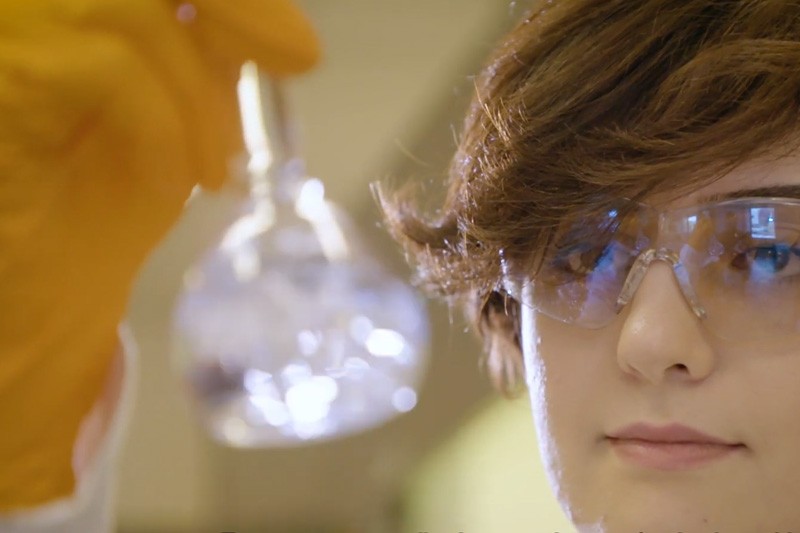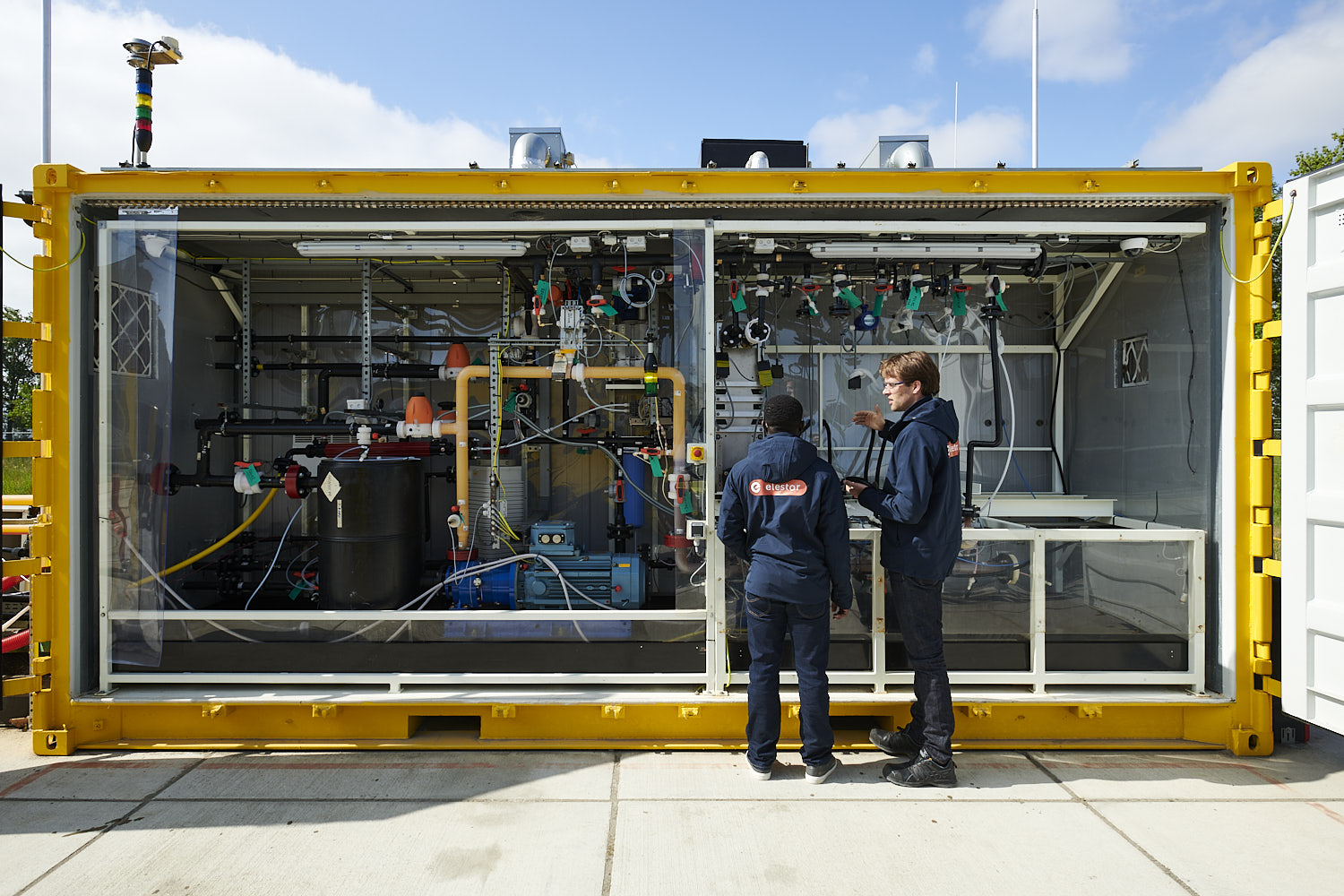
Meet the Experts – PhD students develop the next generation of bromine-based flow batteries
Have you read our previous Meet the Experts-article where we talked with Wiebrand Kout, Ing. and CTO of Elestor? We took a closer look at the energy storage sector and how PhD students and programmes such as FlowCamp help to develop and improve energy storage applications and materials, more specifically bromine-based redox flow batteries (RFBs).
FlowCamp’s training project offers students and researchers the unique chance to learn more about these technologies, improve materials that will be used in the next-generation redox-flow batteries and also make their own contributions.
For example, Sanaz Abassi works in Elestor’s labs as part of FlowCamp’s training network. She studies and improves the membrane that is used in the flow batteries.
“I am working on the membrane development for the hydrogen bromine system. The membrane in the system should be resistant to bromine and should also be conductive. And there is always a trade-off between these 2 properties of the membrane in hydrogen bromine flow batteries”, she says.
What is FlowCamp?
FlowCamp is a training & research network consisting of 11 partners from 8 different countries, coordinated by Fraunhofer ICT in Germany and funded by the European Union’s Marie-Sklodowska-Curie programme.
The funding will be allocated to a group of 15 postgraduates that will get the chance to practically apply their battery technology knowledge and expertise for a period of 3 years.
Training of the PhD students
All 15 participants are both European and non-European and will be able to conduct research and carry out project activities in a European country other than their native country.
Furthermore, the researchers will be individually trained in electrochemistry, material science, cell design/engineering and will also be able to actively take part in the process of battery development.
PhD student Sanaz Abbasi says that “it is fascinating” to study membranes for hydrogen bromine flow batteries and she is convinced that “by using hydrogen bromine flow batteries we can store a huge amount of energy from renewable sources at a much lower cost, which can result in, finally, having a cleaner world.”
What is the goal of the program?
FlowCamp’s main goal is to further develop and improve materials (membranes, electrodes, electrolytes, catalysts, sealing materials) and models for 3 types of new generation high-performance, low-cost redox-flow batteries(hydrogen-bromine, aqueous organic, zinc-air systems), which are currently regarded as one of the most promising energy storage solutions.
BSEF actively supports and encourages the fact that students and professionals receive the chance to conduct research on new bromine-related technologies.


With € 30 million, the SLDBatt project in the context of the Growth Fund Material Independence & Circular Batteries is the largest R&D project into battery technology for long-term storage of sustainably generated electricity in the Netherlands
Minister Hermans with SLDBatt consortium representatives at IEA Energy Storage Symposium in Rotterdam (credits: Mathias de Graag / RVO)
Read more
Elestor’s Hydrogen-Iron Flow Batteries: Powering Europe’s Resilient and Sovereign Energy Future
In its Innovation News Network article from 15 July 2025, Elestor illustrates how its hydrogen‑iron flow batteries can deliver long‑duration, modular energy storage to bolster Europe’s grid stability and strategic autonomy. The story highlights the team’s use of abundant, safe materials and regulatory-aligned design to ensure rapid deployment at scale.
Read more
Permissible technology
Why we find it easy to gain approval for our hydrogen-iron flow battery from both regulators and the general public
Read more
